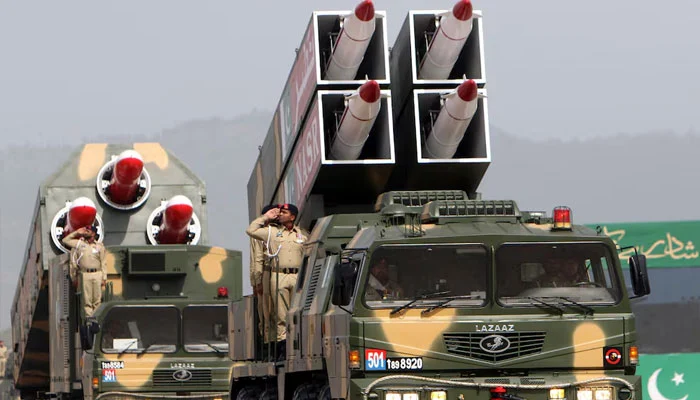ISLAMABAD – June 5, 2025:
Pakistan’s decisive military triumph over India in the recent conflict has dramatically shifted the public discourse surrounding the country’s defence expenditure. What was once a contentious issue is now being hailed as a cornerstone of national strength and pride.
For decades, critics argued that Pakistan’s defence budget placed undue strain on a fragile economy. The military was often accused of consuming resources that could have been directed toward development. But the performance of Pakistan’s armed forces in the recent war has not only silenced many of these voices but also redefined the national narrative.
Operating with less than one-tenth of India’s defence budget, Pakistan’s military delivered a strategic and psychological blow that reverberated beyond the region. Outmaneuvering a much larger adversary, Pakistan’s forces demonstrated that leadership, tactical excellence, and unity often outweigh sheer numerical and financial superiority.
A Shift in National and Global Perception
The outcome of the war has elevated Pakistan’s global stature. The green passport, once viewed with skepticism in international corridors, is now being carried with renewed pride by citizens at home and abroad. The nation’s military competence has not only won the battlefield but also hearts and minds, reshaping Pakistan’s image from a beleaguered state to a nation of resilience and resolve.
The proposed 20% increase in the defence budget for FY2025–26 is no longer facing the same level of scrutiny. Previously met with demands for cuts, defence allocations are now broadly accepted across political and public spheres as essential investments in national security. Where critics once used terms like “an army with a country,” many now acknowledge the armed forces as vital protectors of not just territory, but sovereignty, dignity, and geopolitical relevance.
The war has also served as a cautionary tale, highlighting the importance of strong defence infrastructure. It has drawn comparisons with nations like Iraq, Syria, Libya, and Afghanistan — countries that collapsed under the weight of foreign intervention due to inadequate defence readiness.
Responsibility and Strategic Foresight
Yet, this moment of victory must also be a moment of reflection. While the armed forces have proven their mettle, increased defence spending must be accompanied by greater transparency, accountability, and strategic planning. Both the civilian and military leadership must ensure that every rupee invested contributes to operational readiness, technological innovation, and deterrence capabilities.
At the same time, the government must avoid overmilitarisation of the national agenda. Military success secures borders, but only economic stability, governance reforms, and investment in public welfare can secure the country’s future. The unity and morale generated by this victory should now fuel a broader national revival.
Turning Victory Into Long-Term Gains
This win offers more than military validation — it presents a historic opportunity. Pakistan must now capitalise on the momentum by expanding its footprint in global defence exports, particularly in indigenous arms and ammunition manufacturing. Additionally, the government should use this moment to boost skilled human capital exports, attract investment, and promote the image of Pakistan as a stable and secure nation.
Pakistan has proven its strength in war. The next challenge is to prove its strength in peace — through innovation, diplomacy, and inclusive development. A strong military should be the shield of a strong economy, not a substitute for one.




